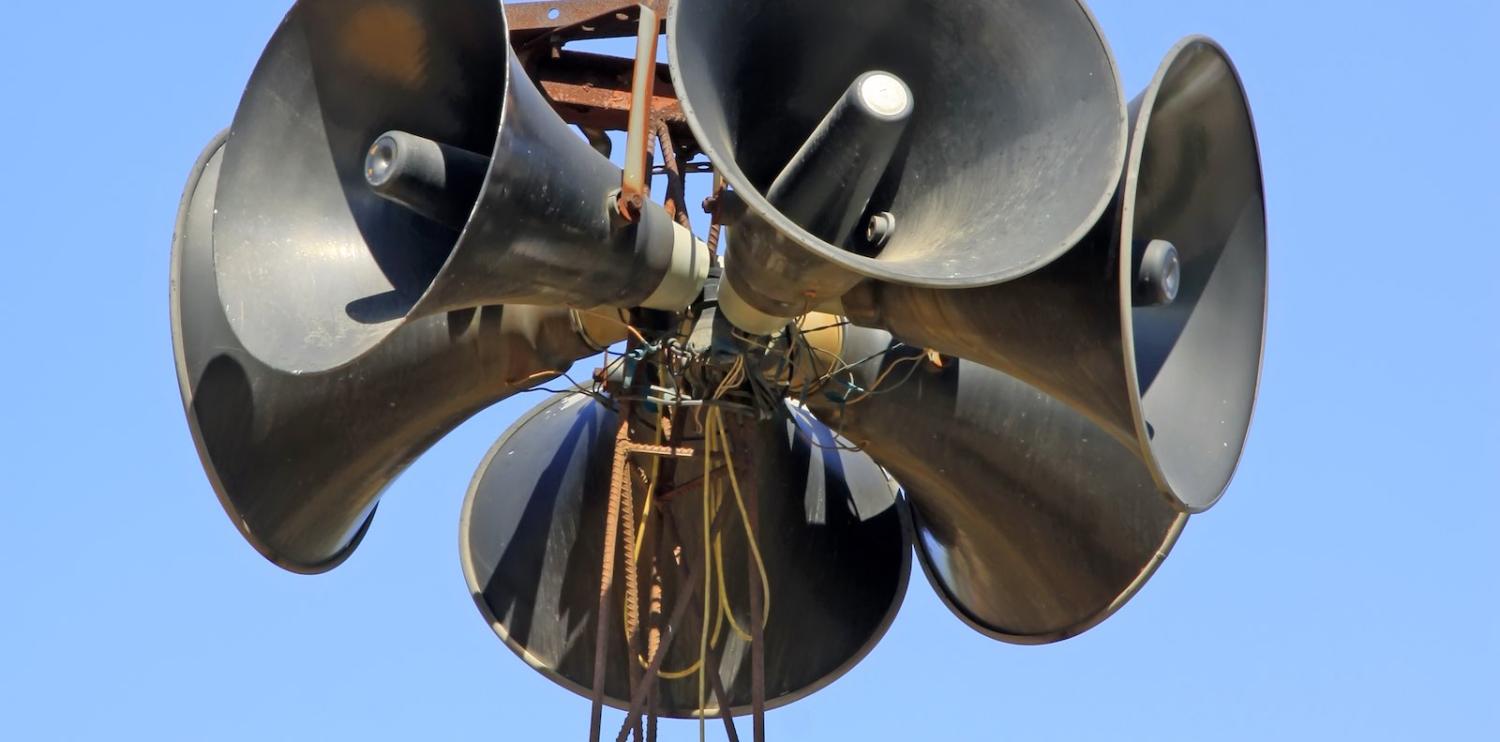Xu Yinsheng, who is in charge of the radio station's control room in the village, stands in front of a console and a microphone, checking to see if the equipment is functioning properly. This room is the centre of the so-called New Village Loudspeaker Project, a Party-led campaign that has so far covered 3,760 villages with 4,200 radio stations in Shijiazhuang, capital city of the province.
New Village Loudspeaker Project aims to strengthen the leadership of CPC in rural ideological work. https://t.co/BPWS8T1DjR pic.twitter.com/PoXsqBovI0
— Global Times (@globaltimesnews) February 1, 2019
Of all the Cultural Revolution hangovers, the last thing I expected to return under President Xi’s back-to-ideology tour was the loudspeaker (delightfully “la ba” in Chinese). Its revival – albeit experimental – flags Xi’s vision for the Party returning to the homes and fields of the masses.
In conversations with older farmers and in accounts of the Cultural Revolution, you’re rarely left with a feeling of longing for Mao’s broadcast system of choice. The classic text Chen Village, recalls their former creepy ubiquity:
‘… if you get a little lazy, next thing you know, you’re on the loudspeakers.’ Sure enough, in the evening, ‘certain people’ in team no. 2 who had been purposely lagging behind would hear about their selfishness ….
From the 1950s until decollectivisation in the late 1970s and early 1980s –China’s villages were organised into “production teams” (shengchan dui 生产队). In Anhui, typical of many rural areas, production teams comprised 15 to 50 households.
Each team had its own loudspeaker, used at the discretion of team leaders and their superiors to cajole and humiliate but also to disseminate Party thinking on everything from the moral turpitude of Mao’s deputy Lin Biao to how to plant new strains of hybrid rice. When the collectives shut down, loudspeakers were quickly removed, a symbolic retreat of the state from the lives of ordinary people.
The dilemma for the Party is that while Mao’s messages were often inspiring for farmers and cadres alike, modern PartySpeak isn’t from the heart.
Loudspeakers didn’t disappear altogether, but were seldom in the hands of the Party. In Beijing, they became the voice of an army of recycling cyclists, with a chorus of “fei pin!” (“scrap goods!”), occasionally joined by shadier “fa piao!” (“issue receipts!”) merchants at subway entrances and an endless “da zhe” (“discounts”) drone from white-tiled shops
Under the government of Hu Jintao, the “New Socialist Countryside” was launched, promising a return of the loudspeaker to the rural county I was working in. But it simply drove around on the back of a truck, and despite being the keenest person in the county to hear it, I only once managed to catch the drab slogans (“everyone has responsibility for building the new socialist countryside”… “cultivate the civilized new breeze, construct a harmonious countryside”).
In village life, vestiges of the Chairman linger. Production teams were renamed “villager small groups”, but farmers still use the Maoist term. The head of the group is always “team leader”. Mao presides over many dining tables, far more than Hu, Jiang, or even Deng.
The Global Times is careful not to mention Mao, emphasizing the loudspeakers’ role in “conveying the spirit of the 19th National Congress”. But Chinese language sources are less coy. Reportage from last August explained why loudspeakers charm old cadres.
Retired teacher and old party member Lu Molin said: The loudspeaker is the most convenient propaganda mode in the countryside. Broadcasting is the best propaganda method for the people. Back in the Mao era, radio was an important tool for the party to reach all households!
Old cadre Gao Yizhu lay sick in bed, his eyes rheumy. But when he heard the village loudspeakers fire back to life, he sat up, wiped away tears and cried, ‘It’s like hearing the Party’s call when you hear the speakers!’
The dilemma for the Party is that while Mao’s messages were often inspiring for farmers and cadres alike, modern PartySpeak isn’t from the heart. Here’s an excerpt from “Part of Document No. 1 of the Central Committee of the CCP”, broadcast on 25 February 2019 by the loudspeaker project.
Develop large rural industries to expand avenues for farmers’ incomes. 1) Speed up the development of specialty agriculture. In accordance with geography, develop diverse specialty agriculture. Promote ‘One Village One Product, One County One Industry.’ Enthusiastically develop fruit, vegetables and tea; edible mushrooms; grains and pulses; tubers…
While this is a heavily edited version of the original – enthusiastic development of silk is inexplicably ignored – over 13 minutes remain.
Over 200 cities and counties have signed up for loudspeaker projects, from Heilongjiang to Zhejiang. For all the limits of Party cant, farmers who haven’t seen an extension agent since Mao died would welcome advice on crops. The return of the loudspeakers could also signal that the Party cares enough to speak to farmers, breaking four decades of silence and feeding nostalgia some farmers feel for an era when – along with workers and soldiers – they were lionized as pillars of Chinese society.
The commercial potential of “la ba” for China’s agribusiness conglomerates is also clear, a potential already realised by pirate radio producers of “racy commercials” targeting villagers. It’s not clear why Chinese farmers would choose the spirit of the 19th National Congress over Viagra variants, but it’s significant the Party has rejoined the battle for their hearts and minds.

